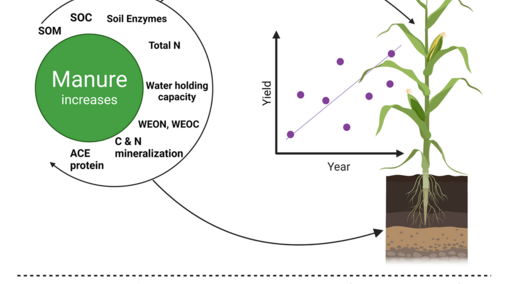Cattle manure is a valuable resource for farmers, as it contains an abundance of macro and micronutrients that are essential for plant growth and development. The nutrients present in manure, such as nitrogen (N), phosphorus (P), potassium (K) and other minerals are essential for soil fertility. One of the most significant advantages of using cattle manure as a fertilizer is that it can enhance the soil organic matter (SOM) content. Soil organic matter plays a crucial role in improving soil structure, water-holding capacity and nutrient availability. Moreover, cattle manure can also increase the changeable fractions of carbon (C) and nitrogen (N) and enhance soil microbial activity, which is crucial for the decomposition and stabilization of soil organic carbon (SOC).
The Knorr-Holden plot, located at the Panhandle Research, Extension and Education Center, Scottsbluff, Nebraska, presents a unique opportunity for studying the impact of long-term manure applications on soil health and crop productivity. In this UNL Water article, UNL researchers share their results after 77 years of applying manure to soil at the Knorr-Holden plot, the oldest experimental irrigated corn plot in North America.

